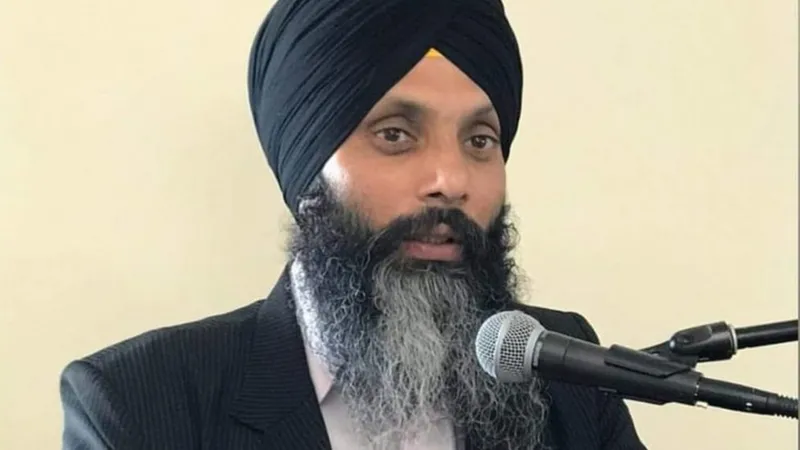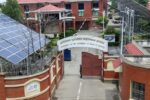CANADA: Three Indian nationals have been arrested and charged over the killing of a Sikh separatist leader in Canada, which sparked a major diplomatic row between the two countries.
Hardeep Singh Nijjar, 45, was shot dead last June by masked gunmen in a busy car park in a Vancouver suburb.
The diplomatic row escalated after Prime Minister Justin Trudeau alleged India’s government may have been involved.
Delhi strongly denied the allegation.
In announcing the arrests on Friday, Superintendent Mandeep Mooker said the three suspects were Karan Brar, 22, Kamal Preet Singh, 22, and 28-year-old Karan Preet Singh.
He said all three had been living in Edmonton, Alberta where they were arrested. They have been charged with first-degree murder, court records show, as well as conspiracy to commit murder.
All had been in Canada for three to five years, police said.
Police added that investigations were continuing, including into “connections to the government of India”.
“There are separate and distinct investigations ongoing into these matters. Certainly not limited to the involvement of the people arrested today,” Assistant Commissioner David Teboul said.
Investigators have been working with counterparts in India but the collaboration has been “rather difficult and rather challenging” for several years, they said
Police said there may be others involved in the killing, and there may be further arrests or charges.
Mr Nijjar was a Sikh separatist leader who publicly campaigned for Khalistan – the creation of an independent Sikh homeland in the Punjab region of India.
In the 1970s, Sikhs launched a separatist insurgency in India which saw thousands killed before it was quelled the following decade. Since then, the movement has been mostly limited to countries with large Sikh populations.
India has in the past described Mr Nijjar as a terrorist who led a militant separatist group – accusations his supporters say are unfounded. They say he had received threats in the past because of his activism.
He was shot dead at the Guru Nanak Sikh Gurdwara in Surrey, a city about 30km (18 miles) east of Vancouver on 18 June last year.
Those close to him have said he was warned by Canadian intelligence services before his death that he was on a “hit list” and there had been threats on his life.
Moninder Singh, a member of the British Columbia Gurdwaras Council who was friends with Mr Nijjar for 15 years, told BBC News that the Sikh community was grateful to see progress in the investigation.
However he said there were still “public safety concerns” and “a lot of tension. There’s frustration. And there’s a hope, as well.”
Three months after he was killed, Mr Trudeau, standing in the House of Commons, said Canada was looking at “credible allegations potentially linking” the Indian state to the killing.
The allegation had been strongly denied by Indian officials, who accused Canada of providing shelter to “Khalistani terrorists and extremists”.
The row between the two countries led Delhi to ask Ottawa to reduce the number of envoys it had in India.
Mr Trudeau has also faced pressure to provide evidence for his allegation of Delhi’s involvement.
BBC








Comment